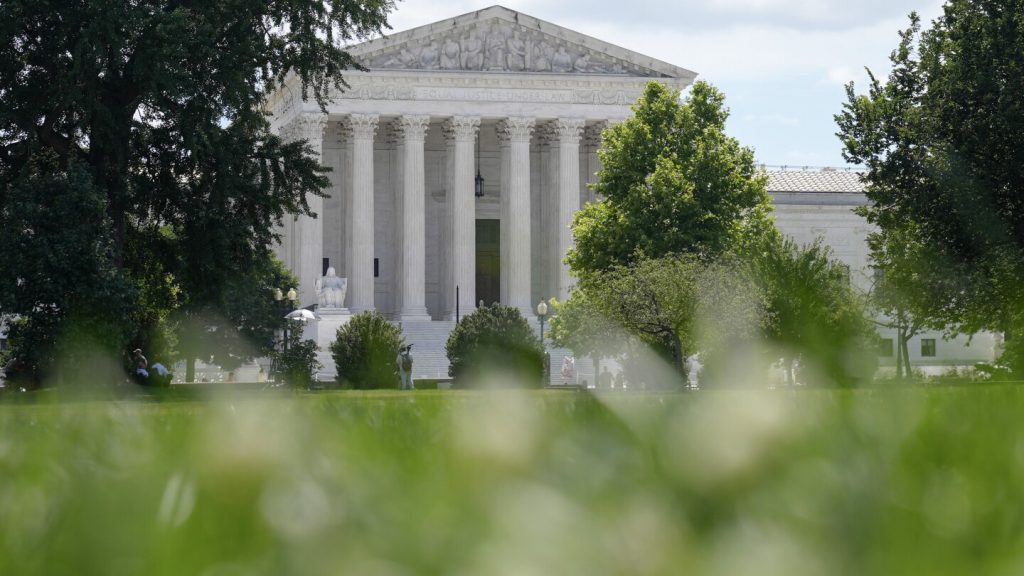The Supreme Court rejected Oklahoma’s emergency appeal to restore a $4.5 million grant for family planning services on Tuesday. The dispute revolves around the state’s refusal to refer pregnant women to a nationwide hotline that provides information about abortion and other options. Three justices – Clarence Thomas, Samuel Alito, and Neil Gorsuch – would have sided with Oklahoma, but lower courts had ruled that cutting off Oklahoma from the funds did not violate federal law. The case arose from a conflict over state abortion restrictions and federal grants provided under a family planning program known as Title X, which has intensified since the Supreme Court overturned Roe v. Wade in 2022.
Clinics cannot use federal family planning money to pay for abortions, but they are required to offer information about abortion at the patient’s request under the federal regulation in question. Oklahoma argues that it cannot comply with the requirement to provide abortion counseling and referrals because the state’s abortion ban criminalizes advising or procuring an abortion for any woman. The federal government offered an accommodation allowing referrals to the national hotline, but Oklahoma rejected it as insufficient, leading to the cutoff of the state’s Title X funds. The Biden administration reversed a ban on abortion referrals by clinics that accept Title X funds in 2021, which was initially enacted during the Trump administration in 2019.
Tennessee is pursuing a similar lawsuit that is still pending in the lower courts, while Oklahoma and 10 other states are mounting a separate challenge to the federal regulation. Oklahoma distributes the Title X funds to approximately 70 city and county health departments for family planning, infertility help, and services for adolescents. The state argues that for rural communities, government-run health facilities may be the only access points for critical preventative services for miles. The case highlights the ongoing debate over abortion rights and access to reproductive healthcare, with different administrations enacting and reversing policies depending on who is in power.
The Supreme Court’s decision not to restore Oklahoma’s funding for family planning services reflects the ongoing conflict between the state’s refusal to refer pregnant women for abortion information and federal regulations under Title X. The case underscores the challenges faced by states in navigating the complex legal landscape surrounding abortion rights and federal funding for family planning programs. The Biden administration’s reversal of the ban on abortion referrals by Title X clinics in 2021 has generated backlash from Republican-led states like Oklahoma, sparking legal battles over the issue. As the debate continues, access to critical healthcare services for vulnerable populations, particularly in rural areas, remains a key concern for policymakers and advocates on both sides of the abortion debate.
Oklahoma’s argument that it cannot comply with the federal requirement to provide abortion counseling and referrals due to the state’s abortion ban highlights the clash between state laws and federal regulations on reproductive healthcare. The refusal to refer pregnant women to a national hotline for abortion information has led to the cutoff of Title X funds to the state, further complicating the already contentious issue. The case reflects broader challenges faced by states in balancing their own laws with federal mandates, particularly in the highly charged arena of abortion rights. As the legal battle continues, the implications for access to critical family planning services in Oklahoma and other states remain uncertain, with potential consequences for vulnerable populations who rely on these services for essential healthcare needs.
The Supreme Court’s rejection of Oklahoma’s emergency appeal in the dispute over Title X funding for family planning services highlights the ongoing tensions between states and the federal government on abortion-related issues. The conflicting interpretations of federal regulations on abortion counseling and referrals have led to legal battles that have significant implications for access to reproductive healthcare services in states like Oklahoma. The Biden administration’s policy changes on abortion referrals have sparked pushback from Republican-led states, setting the stage for continued legal challenges and political debates on this divisive issue. As the case unfolds, the impact on women’s healthcare services and the broader landscape of reproductive rights in the United States remains a central concern for policymakers, advocates, and the public.














